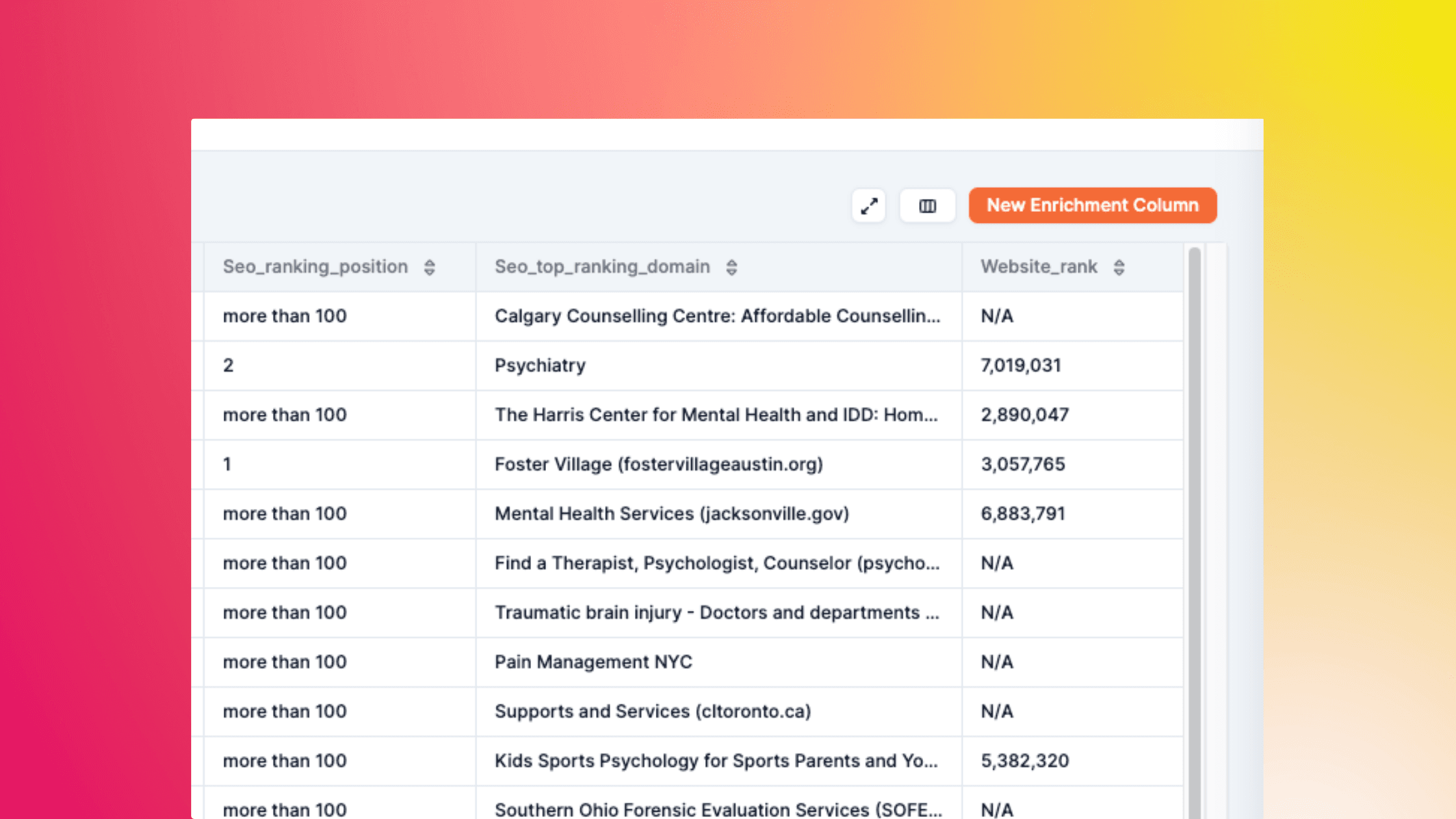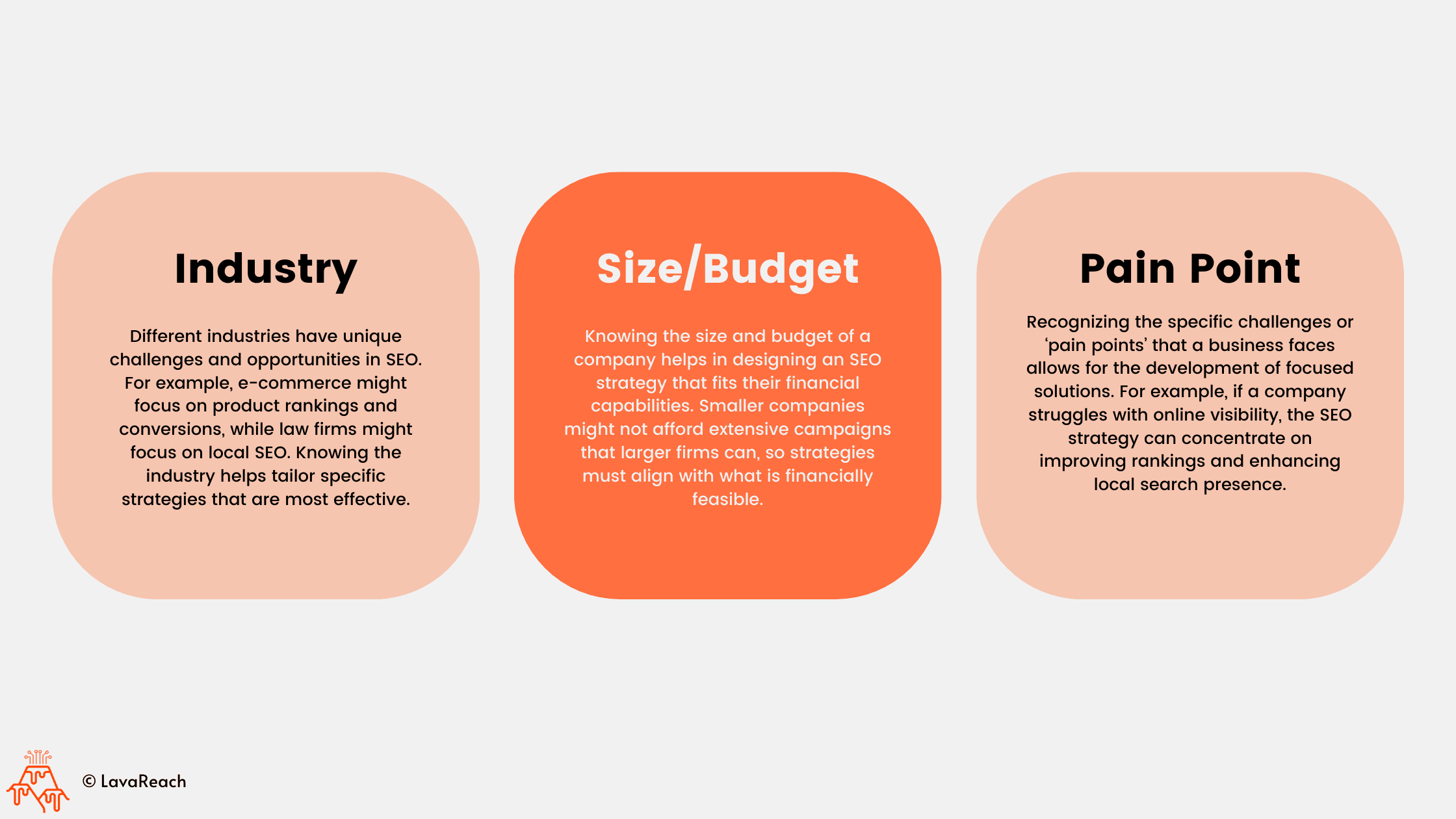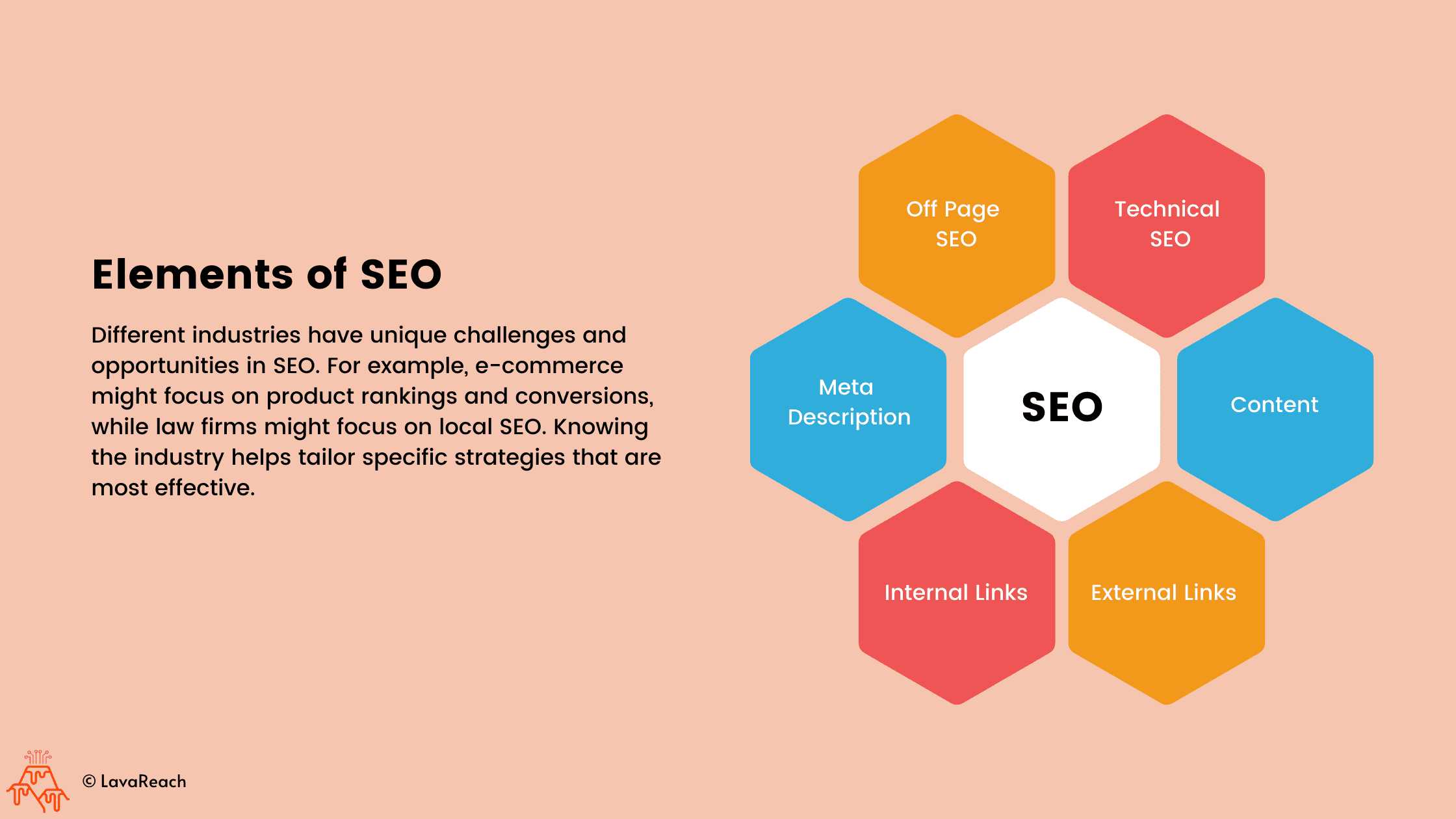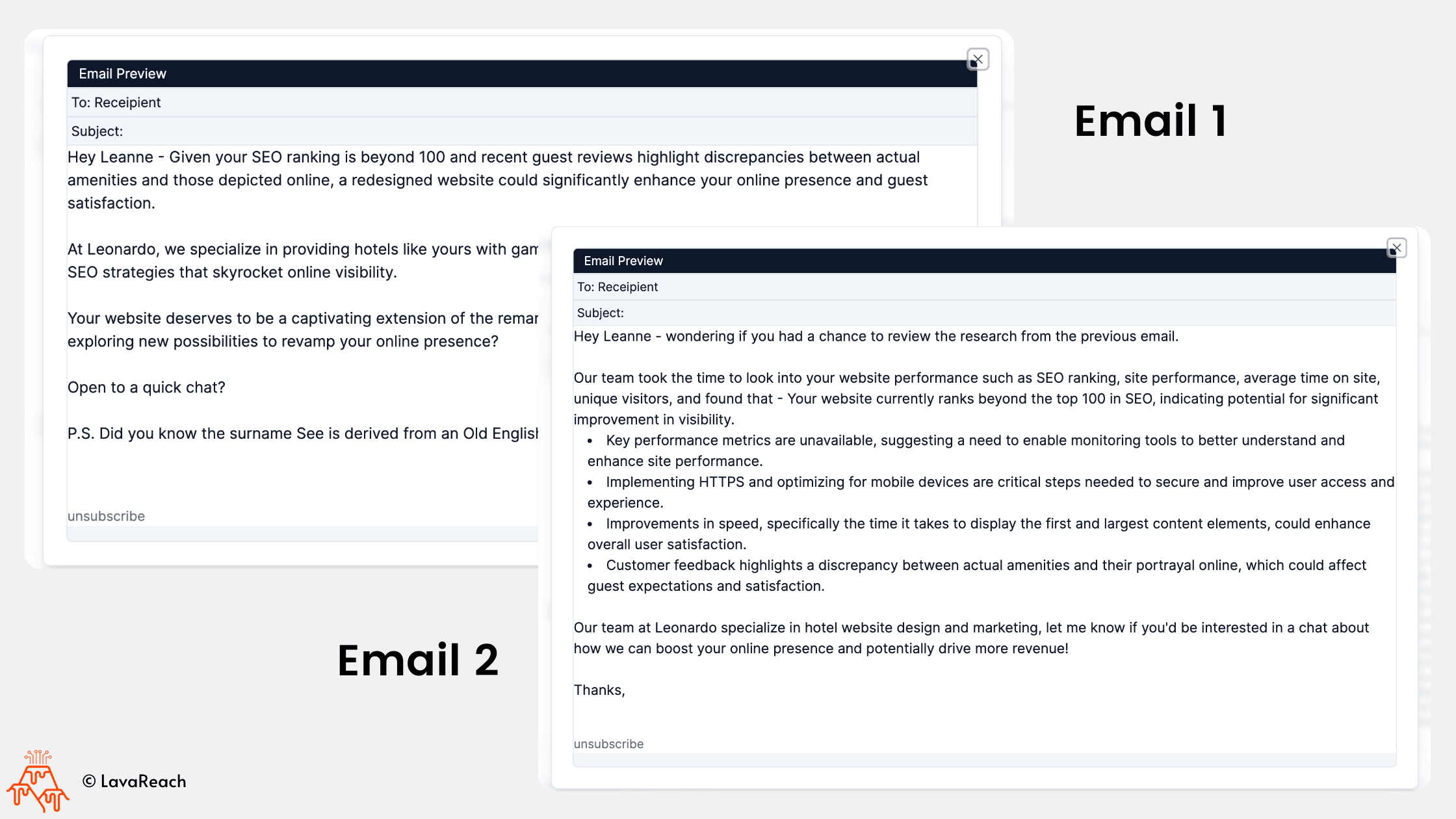
How to Sell Search Engine Optimization as an SEO Agency - Guide
Table Of Contents
- Key Takeaways
- Step 1. Define Your Ideal SEO client Profile.
- Step 2: Develop Your SEO Service Offerings.
- Step 3: Build an Inbound Marketing Engine.
- Step 4: Implement Outbound Prospecting Tactics.
- Step 5: Master the Sales Consultation and Pitching Process.
- How to Sell SEO Services with AI as an SEO Agency
- Deliver Exceptional Client Service
- Systematize and Scale Your SEO Agency Operations.
- Nurture Client Relationships for Retention
- Conclusion
- FAQs
I don’t have to tell you how hard it is to sell anything these days. Buyers have become resilient to our efforts to get their attention, and it’s getting harder to stand out from the crowd. This is especially true when you sell search engine optimization. These days you’re not only competing with other SEO agencies but also with AI SEO tools and ChatGPT!
But what if I told you that your SEO agency can get ahead of the game? What if I told you that you can get in front of the buyer before they’ve even realized they have a problem to solve? You can keep grinding away with traditional sales tactics, or you can leverage the power of AI to identify prime prospects before your competitors even know they exist. This approach is crucial for growing your own SEO business, helping you acquire clients, set expectations, and increase revenue.
KEY TAKEAWAYS
- Define your ideal SEO client profile by targeting specific industries, business sizes, and understanding their SEO pain points.
- Develop tailored SEO service packages like audits, on-page SEO, link building, content marketing, etc. at different investment tiers.
- Build an inbound marketing engine optimizing your website for target keywords, creating educational content, and leveraging social media.
- Implement outbound prospecting tactics identifying decision makers, crafting personalized outreach, and persistently following up on sales triggers.
- Use AI tools like LavaReach to identify timely sales triggers and get hyper-personalized SEO proposals in front of prospects.
- Master the sales process by qualifying leads, presenting comprehensive SEO strategies, and overcoming pricing/timeline objections.
- Deliver exceptional client service with clear expectations, performance tracking, regular reporting, and identifying upsell opportunities.
Step 1. Define Your Ideal SEO client Profile.
As an SEO agency, one of the biggest mistakes you can make when you start selling SEO services is trying to be all things to all potential customers. You'll waste time chasing bad-fit leads and struggling to sell SEO services to companies that don't really need or understand what you offer. The most successful SEO companies are laser-focused on a specific ideal customer profile.

Identify industries and niches to target
Look for industries where companies are competing heavily on search engine rankings and organic search visibility. E-commerce, travel, real estate and legal are all great examples. But don’t stop there - dig into the nuances. Maybe you specialize in local SEO for restaurants or technical SEO for software companies. The more specific your niche, the better you can tailor your SEO sales approach.
Look for industries where companies live or die by their search engine rankings and online visibility. A few examples:
- E-commerce (apparel, furniture, consumer products, etc.): These brands battle for product listing visibility and traffic from high-intent commercial keywords.
- Travel/Hospitality: Hotels, airlines, travel booking sites, etc. need to show up for lucrative destination and experience searches.
- Legal: Law firms go after valuable geographic keywords like “Boston personal injury lawyer” to get cases.
But you can go even more niche from there. For example, you could specialize in local SEO for restaurants, technical SEO for software companies, or e-commerce SEO for DTC subscription brands. Understanding how to optimize websites for search engines is crucial in these niches.
Determine company size and budget range
Small businesses and enterprise clients have vastly different needs and budgets for SEO. Pick a sweet spot and stick to it. A good rule of thumb is to target companies with 20-500 employees that can invest $1000-$5000/month and more on SEO efforts. Much smaller than that and they may not have enough budget. Much larger and you're dealing with complex enterprise needs.
Understand common pain points and challenges
What keeps your ideal clients up at night? For e-commerce brands it might be losing ground to Amazon. For local businesses, not showing up in map pack results. What are the biggest SEO challenges and priorities for your focus industries? For example:
- E-commerce brands obsess over Amazon taking over the search results and conversion optimization
- Local businesses struggle to get found in map pack results and beat competitors
- Software companies need to rank for high-value product keywords and improve technical SEO
Really dig into the nuances of the specific industries and niches you'll pursue. That way, when you start prospecting, you can speak directly to their biggest pain points and show how your SEO services will solve them.
Step 2: Develop Your SEO Service Offerings.
Once you've honed in on your ideal SEO client profile, it's time to get specific about what you'll actually offer those potential customers. Selling SEO services is a lot easier when you have a well-defined process and SEO service packaging.
Conduct keyword research and competitor research
Before you can put together an SEO strategy, you need to understand the search intent and landscape for your focus industries. Use tools like Google Keyword Planner, Ahrefs, and SEMRush to identify relevant keywords and see how competitors are positioning themselves in the search results.
Look for gaps and opportunities. Identify the most valuable product, category and commercial keywords. See how major players like Amazon, Walmart and niche DTC brands are showing up in the search results.
Or for the legal niche, look at how law firms in different markets are targeting GEO-specific keywords like "Los Angeles personal injury lawyer." Analyze the content and link strategies of sites currently ranking.
Outline a comprehensive SEO strategy
Based on your research, map out a complete SEO process covering on page SEO, technical SEO, link building, content marketing, and any other core components. Don't just list tactics though - explain why they're important for that particular niche and how they'll drive organic traffic and search visibility.
For example, for an e-commerce SEO strategy, you might emphasize the importance of technical website optimization, enhancing product listings with rich snippets, earning editorial links at scale, and implementing a sophisticated internal linking structure.

Package SEO services (project-based, monthly retainer, etc.)
Most SEO agencies offer both project-based and recurring monthly retainer options. With projects, you might do a free SEO audit or site migration for basic websites. Retainers provide ongoing SEO work like content creation, link building, and SEO reporting.
I'd recommend packaging different tiers (e.g. basic, standard, premium) with increasing levels of effort and pricing. Maybe the basic package just covers connecting Google analytics, Google search console, an SEO audit, and on-page optimization. Standard adds blogging and link building. Premium is full-service.
Lay out exactly what's included in each tier so prospects can easily understand what they're buying and the value.
Step 3: Build an Inbound Marketing Engine.
With your ideal customer profile defined and service offerings packaged up, you're ready to start attracting leads. But you can't just cold call or email blast your way to more sales. The best SEO agencies use inbound marketing to get found by their target audience.
Get SEO Prospects
to Chase You
Provide value throughout your outreach with LavaReach's automated site audits.

Optimize your website for target keywords
This is kind of a blessing and the curse. You know SEO so do your direct competitors. So you'll be competing with the best for those juicy target keywords. If you can pull it off, kudos to you! If not, then don't stress too much about. But if you're looking to work with local SEO clients then it should be much easier to rank.
Create educational content (blog, videos, etc)
You need to build authority and mindshare in your focus industries. Become the go-to educational resource by investing heavily in content marketing. I'm talking in-depth guides, videos explaining key SEO tactics, expert interviews - the works. You want your SEO agency name to be top of mind. When they're ready to buy, you're the SEO expert they'll think of first.
Let's say you're targeting the e-commerce niche. You'd want in-depth guides like "The Complete Guide to E-Commerce SEO" or "17 Ways to Increase Organic Traffic to Your Online Store." Create videos explaining advanced SEO tactics like "How to Optimize Product Listings for Google Rich Snippets."
For the legal niche, you could have guides like "Law Firm SEO: How to Outrank Your Competitors" and videos titled "On-Page SEO Checklist for Lawyer Websites."
The more niche-specific your content is, the better you'll attract your ideal SEO client.
Leverage social media and community building
Don't just push out content into a void. Use social media marketing to promote your best stuff and engage your audience. Join niche online communities like Reddit or Facebook Groups. Answer questions, provide free advice, and get known as a helpful SEO authority. Answer questions, provide free advice, and get known as the helpful SEO authority.
Don't just regurgitate your content into a void though. Find the online communities where your target audience hangs out. For e-commerce, that could be Reddit communities like r/ecommerce, r/marketing, r/bloggers. For legal, maybe Slack groups or Facebook Groups for lawyers.
Step 4: Implement Outbound Prospecting Tactics.
Your inbound marketing efforts will start generating leads over time. You know the drill. But to really accelerate sales, you need an outbound prospecting strategy too. Even the best SEO agencies don't rely solely on inbound marketing - they combine it with targeted outreach.
Identify decision makers and build prospect lists
Start by re-defining your ideal SEO client profile - company size, industries, likely job titles of decision makers, etc. Then build targeted prospect lists using tools like LinkedIn Sales Navigator. Don't just buy lists though - you want accurate contact info for the right potential customers.
For example, if you're selling SEO services to e-commerce brands, you'll want to target roles like VP of Marketing, E-Commerce Director, Growth Manager, etc. Use LinkedIn Sales Navigator search filters to build lists of those titles at companies matching your ideal customer profile.
Or for the legal niche, your key prospects might be Partners, Heads of Marketing/BD, and Intake Managers at law firms of a certain size and practice area.
Craft tailored outreach messages and cold emails
Generic cold emails get instantly deleted. Instead, craft personal messages that speak to their SEO challenges and provide value upfront. Share a quick SEO tip, comment on their website, or offer a free SEO audit. The goal is to start a conversation.
Do not jump right into cold email automations though. Do manual cold email outreach first. Nail the messaging/framework and then use these insights to set up automated email cadences.
Don't blast generic messages. If you're prospecting an e-commerce brand, reference a specific issue you noticed with their online store like slow load times or poor mobile experience. For law firms, you could comment on their website's lack of local listing citations or outdated SEO practices.
Below are two example emails generated through LavaReach’s email builder, personalized on both touchpoints with unique site audit information.

Then provide a bite-sized tip or piece of value related to that problem. Your goal is to pique their interest by showing your SEO expertise in their niche.
Follow up persistently to book sales calls
Most SEO sales don't close on the first outreach. You need a persistent, multi-touch follow up sequence using emails, LinkedIn messages, calls, etc.
Your follow up sequence should continue providing insights tailored to each prospect's situation. For that e-commerce brand, you could share a case study showing how you increased revenue 35% for another online retailer in their industry. For the law firm, highlight how you helped another local practice dominate their city's search results.
Each follow up should provide more SEO insights. If still no response after 7-10 touches, maybe it's time move on to better-fit prospects OR revisit the prospect later (it could be wrong timing).
Step 5: Master the Sales Consultation and Pitching Process.
Your outbound prospecting efforts will start booking initial sales conversations. But there's still a big gap between that first call and actually closing new SEO clients. The final stage is nailing your sales consultation process.
Qualify leads over discovery calls
The first call should be a two-way interview, not a pitch fest. Ask questions to confirm the lead fits your ideal SEO client profile. Understand their goals, challenges with search engine rankings, marketing team/resources, and timeline. Disqualify any bad-fit opportunities early. If the client is not a fit, be upfront about it. You'll save yourself headaches down the road. They will appreciate your honesty and maybe even refer potential clients in their circle that fit your ICP.
Present your SEO audit findings and proposal
If it's a qualified lead, conduct a technical SEO audit to identify issues and opportunities on their website. Put together a comprehensive SEO strategy covering on-page SEO, link building, content marketing, and other relevant SEO tactics. You know the drill. Present your findings and proposal for how you'll improve their organic search performance.
For example, if you're pitching an e-commerce brand, your audit might uncover issues like duplicate content from product pages, missing schema markup, poor internal linking structures, and slow page load times. Your proposal would then outline a technical SEO cleanup, product listing optimizations, content strategy, and link building tactics to improve their visibility for high-value e-commerce keywords.
For a law firm prospect, your audit might reveal problems like inconsistent NAP listings, lack of location page optimization, poor quality backlink profiles, and outdated website code. You'd then propose local SEO optimizations, a local link building campaign, content for targeted practice area keywords, and website upgrades.
Overcome common objections and close the deal
Be prepared for pushback on pricing, timelines, or questions about working with other SEO agencies. Have data-backed responses that prove the ROI of SEO. Address concerns like project scope, communication, SEO reporting, etc.
E-commerce brands may question the ROI of SEO vs paid ads or be hesitant to move away from an existing agency. Law firms might push back on pricing or want faster results than SEO can deliver.
Have data-backed responses and case studies ready to prove the long-term value and compounding returns of SEO. But also be prepared to discuss things like flexible pricing models, timeline expectations, communication processes, and your experience in their specific niche.
Once you've sold them on your SEO services, it's time to close. Discuss contract terms like pricing models (project-based vs. recurring retainer), deliverable timelines, out-of-scope work, etc. Get a signed agreement before kicking off any SEO campaigns.
How to Sell SEO Services with AI as an SEO Agency
Nailing the sales consultation process is crucial, but even getting to that point requires cutting through a ton of noise to identify the right prospects. This is where AI-powered prospect research from companies like LavaReach can help SEO agencies.
The traditional approach to prospecting relies heavily on generic lists, spray-and-pray outbound, and hoping you catch a few companies in their "window of dissatisfaction." But LavaReach takes a fundamentally different approach called trigger-based selling.
The idea is to identify highly relevant sales triggers that signal when a prospect is primed to buy your specific SEO services. These could be things like a new website launch, hiring a marketing leader, expanding into new markets, or suffering from a highly public SEO issue like a traffic drop.
Using AI to constantly monitor sources like news, job boards, earnings transcripts, review sites, and more, LavaReach surfaces these triggers in real-time. Their proprietary workflows then automatically enrich each triggered account with all the context you need about their SEO challenges, priorities, tech stack, decision makers, and more.
From there, you can use LavaReach's AI assistant to craft hyper-personalized outbound campaigns speaking directly to that triggered event and specific SEO need. No more generic cold emails - you're delivering tailored, consultative messages that position you as the perfect solution before they've even realized they need you.
Let's say LavaReach identified an ecommerce brand that just went through a website migration, only to see a massive drop in organic traffic and rankings. You'd get automatically notified of this "SEO crisis" trigger, along with context like:
- Technical SEO issues detected on their new site
- Top impacted product categories and keywords
- Estimated revenue impact from the traffic loss
- Key marketing leadership and contact details
You could then have the LavaReach AI craft a personalized outreach cadence highlighting the issues you identified, explaining why their migration caused these SEO problems, and presenting your services as the solution to recover their traffic and revenue fast.
Or for a SaaS company entering a new regional market, LavaReach might surface that expansion trigger and relevant SEO insights like:
- Search landscape and competitor analysis for that region
- Top keywords they need to rank for in the new market
- Content gaps they're missing to build local relevance
- Market-specific technical/localization SEO recommendations
The possibilities are endless for using AI-powered trigger data to cut through the noise and get your SEO services in front of the right prospects at exactly the moment they need you most. Interested? Book a demo call.
Deliver Exceptional Client Service
Closing the deal is a big win, but it's just the start. The key to earning referrals and keeping paying customers long-term is providing top-notch service after the sale.
As soon as contracts are signed, align on all expectations, roles and responsibilities. Define a communication plan stating when/how you'll provide SEO reporting, updates, meetings, etc. No surprises.
Time to execute on the SEO strategies you sold! But don't just check boxes - document your methodology, track all activities in a project management tool, and measure performance metrics like rankings, traffic, and conversions in Google Analytics.
Don't make clients nag you for updates. Proactively share comprehensive reports on all SEO work, search engine performance, and progress towards goals. Have regular check-in calls to review, make adjustments, and discuss next steps.
The best SEO clients continuously invest more into strategies that work. Once you've achieved initial success, look for other areas like paid advertising, social media marketing, or conversion rate optimization to grow their business further. If you don't specialize in those marketing areas, I highly recommend you consider partnering up with a marketing agency or a freelancer that does.
Systematize and Scale Your SEO Agency Operations.
As you retain more clients and your SEO business grows, you'll need to shift from doing everything yourself to building sustainable processes. The most successful SEO agencies systematize their operations to scale.
Document processes and create templates - Don't keep everything in your head. Document all of your processes for sales, client onboarding, SEO campaigns, reporting, etc. Create templates for proposals, contracts, reports and other deliverables to streamline your SEO work.
Invest in tools for efficiency and automation - There are tons of great SEO tools that can automate tedious tasks and make your team more efficient. Implement project management software, rank tracking tools, content creation/promotion tools, reporting dashboards and more.
Hire and train an SEO team as you grow - You can only scale so far doing everything yourself. As you take on more SEO clients, build out a team with specialized roles - SEO strategists, link builders, writers, analysts, account managers, etc. Create an onboarding process to properly train and ramp new hires.
Nurture Client Relationships for Retention
With systematized operations in place, you can handle more SEO clients while still delivering great results. But don't take your foot off the gas - prioritize proactive relationship management to retain those hard-won customers.
Provide ongoing value and education - Don't just share reports and bounce. Make your SEO agency a trusted partner by continuously providing value. Send curated articles, invite clients to webinars/events, and share new SEO strategies or industry insights. Become their go-to SEO expert.
Gather feedback and testimonials - Consistently ask for feedback - what's working well, areas for improvement, other marketing needs, etc. This shows you care and want to keep improving. When you get positive feedback, ask for testimonials to use in your marketing and sales process.
Explore retainer model for recurring revenue - Project work is great for cash flow, but retainers provide predictable recurring revenue. Once you've proven success, propose an ongoing monthly retainer for continued SEO services. This cements you as their long-term partner.
Conclusion
The game has changed. Buyers are more resistant than ever to traditional sales tactics that disrupt and annoy them. The SEO agencies that will thrive are the ones that can get ahead of the curve - identifying prospects at their exact moment of need before the competition even knows they exist.
This level of precision and timing is only possible through the power of AI. Tools like LavaReach act as your intelligence agency, constantly monitoring for highly relevant "trigger events" that signal when a company is primed to invest in SEO services.
Maybe it's a website migration gone wrong that tanked their organic traffic. Or an expansion into a new market where they need to build local SEO presence. Whatever the trigger, LavaReach equips you with the context to cut through the noise with hyper-personalized outreach that positions you as the perfect solution before they've even realized they need you.
Stop burning cycles on cold calls and spammy mass emails. It's time to work smarter, not harder. Supercharge your sales process by getting in front of the right prospects at the exact right time, every time.
Book a demo with LavaReach today and see first-hand how their AI-powered trigger data and personalization can transform your ability to land coveted SEO clients.
FAQs
What is trigger-based selling for SEO services?
Trigger-based selling SEO services involves identifying timely "triggers" signaling when companies need SEO. These sales triggers include events like website launches, website traffic drops, leadership hires, funding, etc. Using AI, tools like LavaReach monitor for these triggers across news, jobs, reviews, etc.
What are the benefits of using AI for SEO services sales?
Using AI for SEO sales allows to identify prospects before competitors through real-time monitoring of sales triggers. AI powers personalized outreach speaking directly to prospect's SEO challenges. This cuts through noise with tailored messaging positioning SEO services as the perfect solution at their moment of need.
What should be included in SEO service packages?
Most SEO agencies offer upfront project-based SEO services like technical audits, website migrations, and keyword research. They also provide recurring monthly retainers covering on-page SEO, link building, content writing, SEO reporting, and more. Package different service tiers like basic, standard, premium.
What are good outbound tactics for selling SEO services?
Identify targeted prospect lists fitting your ideal SEO client profile based on industry, company size, marketing leadership roles, etc. Use tools to monitor for timely sales triggers signaling SEO needs like website issues, website traffic drops, expansions into new markets, leadership changes, etc.
How do I nurture SEO client relationships?
Nurture SEO client relationships through ongoing value and education. Provide free audits, guides, webinars, and industry insights positioning yourself as a trusted SEO expert. Gather regular feedback on your SEO services and results. Explore recurring monthly retainer models to become a long-term SEO partner.

About Daniel Zhao
Daniel Zhao is a multiple time founder with years of first-hand experience in B2B sales and revenue leadership. He has a consistent track record of helping companies experiment and implement outbound in SaaS and other industries. Throughout his career, Daniel has set up numerous outbound motions for the first time for companies that previously had not found success with sales led customer acquisition.